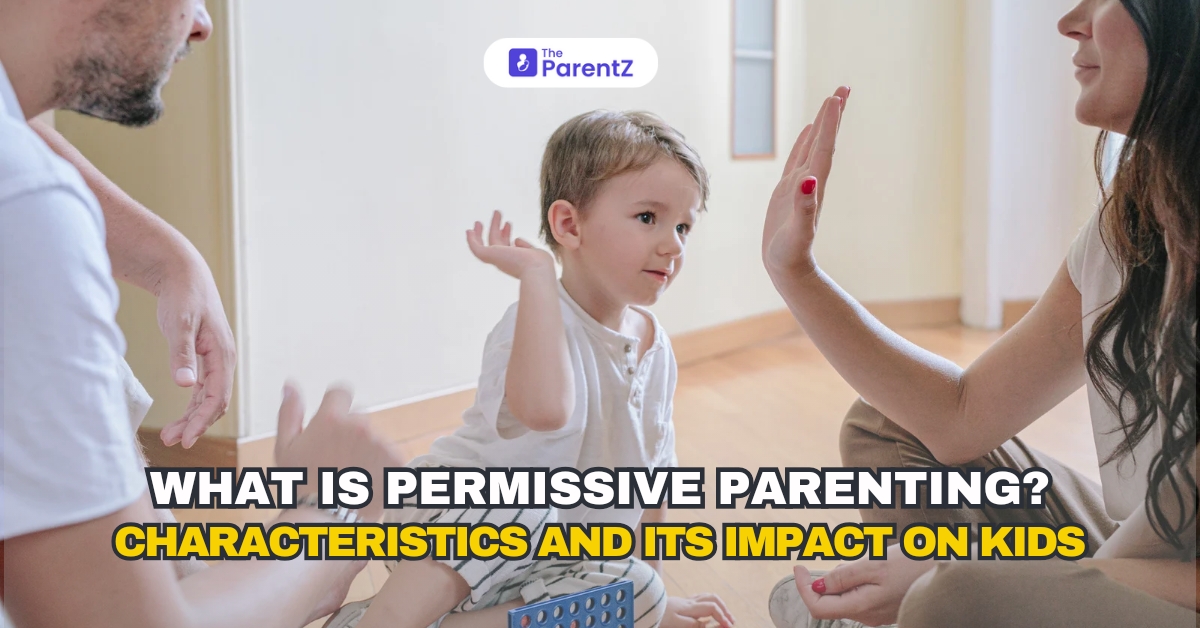Parenting is all about balancing the thin line between being too strict and too lenient. Do you find yourself never saying ‘no’ to your kids just because you have that sweet spot for them?
This is what permissive parenting is. It’s more like the ‘cool aunt’ than the ‘strict principal’ type. The permissive approach typically focuses more on the child’s immediate happiness than strict rules. Also considered gentle parenting, every one of two parents follows this parenting style, which has been proven to have both positive and negative behaviors in the kids.
Read below to learn more about permissive parenting, its characteristics, and its impacts on child behavior.
What Actually Is Permissive Parenting Style?
Also known as indulgent parenting, this style is characterized by low demands and high responsiveness. In simple words, parents who use this approach are loving and caring and only set a few rules and expectations for their kids.
Here are some key features to understand what permissive parenting actually looks like:
- Parents avoid setting strict rules and expectations.
- Believe in only minimal restrictions on their child.
- Gives a high degree of freedom to their kids.
- Very supportive and responsive to their children’s wishes.
- Let the children make their own choices.
- Parents try to avoid confrontation and let kids learn from their own experience.
Positive Impact Of Permissive Parenting
Permissive parenting is viewed with suspicion by some parents who believe such kids lack discipline. But is it really that bad? Well, no. Here are some of the pros of a permissive style on your child’s behavior.
High Confidence
When kids feel valued and heard, as in the case of permissive parenting, they are likely to develop high confidence and self-esteem. In fact, kids who know how to express themselves without feeling the fear of criticism believe in their own worth.
Better Social Skills
Parents who follow this parenting style engage in open communication with their kids, which benefits them when it comes to improving their communication skills. Such kids are not only good at negotiation but also at understanding others.
Independence and Creativity
When restrictions are limited, children get enough opportunity to explore their skills. This way, they develop a sense of independence while also developing their ability to think outside the box and come up with unique solutions to their problems.
Negative Impact Of Permissive Parenting
Every coin has two sides, and so does permissive style. Here’s how being too lenient and rigid on disciplinary measures can impact your child’s behavior.
Lack Self-Discipline
Since this style lacks proper restrictions and rules, it is possible for parents to witness a lack of self-discovery in their children. For example, kids who don’t go to bed on time or skip difficult tasks tend to suffer either at their school or workplace in the future.
Trouble Due to an authority mindset
Since permissive parenting doesn’t let children get used to obeying instructions, it becomes challenging for them to respect boundaries that their teachers or others outside the home may have set. This way, their authority mindset can pose trouble for parents alike.
Impulsive Behavior
According to a study, kids who are raised in a permissive environment likely have impulsive behavior along with poor decision-making since they have not learned to recognize the outcomes of their actions.
Takeaway
When it comes to deciding if you should choose a permissive style of parenting or not, factors such as lifestyle and values play a big role. Besides, it may also depend on your child’s behavior and your ability to maintain that perfect balance between responsiveness and demandingness. No single style can work for all families; therefore, you must rethink your long-term goals to figure out what will work best for your kids.








Be the first one to comment on this story.